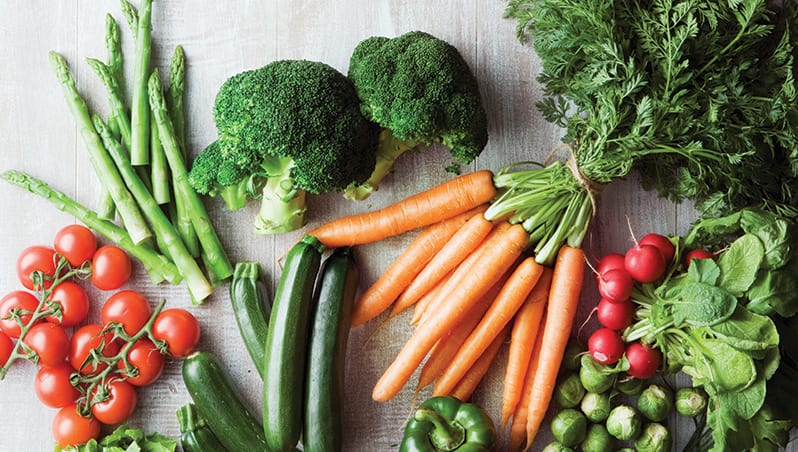Springtime rejuvenation
This article was originally published in March 2012

Spring is nature’s season of renewal, when dormant energy and beauty reemerge from winter’s depths. Take a cue from the calendar and help rejuvenate your body with a detoxifying cleanse, abundant with foods and supplements that stimulate and support proper digestion and toxin elimination.
Dietary experts call spring a natural time to shift toward lighter ingredients and away from rich, hearty, wintertime meals that can leave us feeling sluggish as the days brighten. Eating what’s in season is a simple way to help the body’s natural elimination systems kick into higher gear, boosting immunity, energy and clarity in the process.
Many harbingers of spring — delicate asparagus spears, pungent mustard greens, vibrant red strawberries, and young watercress, arugula and other spring greens — contain natural compounds that help support the cleansing work of the liver, kidneys and digestive system.
“Almost without exception, all of the vegetables that are readily available in the spring have detoxifying properties,” says Tiffany Pollard, M.S. and former PCC Cooks instructor. “Springtime is already the time when the body is attempting to detoxify itself more. If people can lighten their load in terms of what they eat, [they’re] going to be detoxifying right there.”
Most of us are familiar with the concept of eliminating environmental toxins from pesticides, solvents, radiation and more. But cleanses also can help the body rid itself of metabolic toxins (dysfunctions in the breakdown of food, sometimes due to a sensitivity) and microbial toxins (which can arise from an imbalance of intestinal microflora).
One basic whole foods-based detox Pollard recommends is to eliminate all dairy, gluten, refined sugar, caffeine (other than occasional green tea), pork, beef and packaged foods for 30 days, with lean poultry and fish allowed the first and last 10 days and a vegan diet 10 days in the middle. This achieves several results: greater awareness of any food sensitivities, a lighter burden on key organs so they can “catch up” on eliminating toxins, and a lightness of being that often literally includes weight loss.
“All the ancients always knew that digestion was key to your health,” said Roxanne Green, the Redmond PCC Health and Body Care coordinator. Hence, the cuisines of many longtime cultures include meals created with ingredients still recognized for their healing properties, such as colorful produce, vinegars, fermented foods and whole grains.
Thankfully for us, diversity of flavor — sour, bitter, salty, etc., — happens to help the body function at its best. Bitterness, for example, prompts the body to generate more digestive enzymes: yet another reason to eat your leafy greens.
“Kale and chard are bitters, but we don’t eat enough of them in this country,” Green says. “Unless you’re a PCC shopper.”
Staple ingredients and tips for a delicious detox
With a little planning and key ingredients on hand, cooking with whole foods need not take hours, Pollard says. She recommends roasting or steaming a variety of vegetables at the start of each week, along with brown rice or quinoa. Store in the fridge, then pull out as needed to season and combine into different, quick meals.
Toss a salad, puree the vegetables into a soup, add them to a curry or create a quick stir-fry with cashews and pumpkin seeds.
Detox-friendly foods to keep on hand:
- Coconut oil and milk
- Extra virgin olive oil
- Vinegars (rice wine, apple cider and ume plum)
- Miso and ume plum pastes (for flavoring)
- Nut butters (unsweetened sunflower seed or almond)
- Sea vegetables, such as nori
- Seasonings: garlic pepper, curry powder with turmeric, Italian seasoning mix, cardamom, cumin
- Whole grains: brown rice and quinoa
- Meats: lean poultry, wild fish
- Plenty of fresh, seasonal fruits and vegetables
